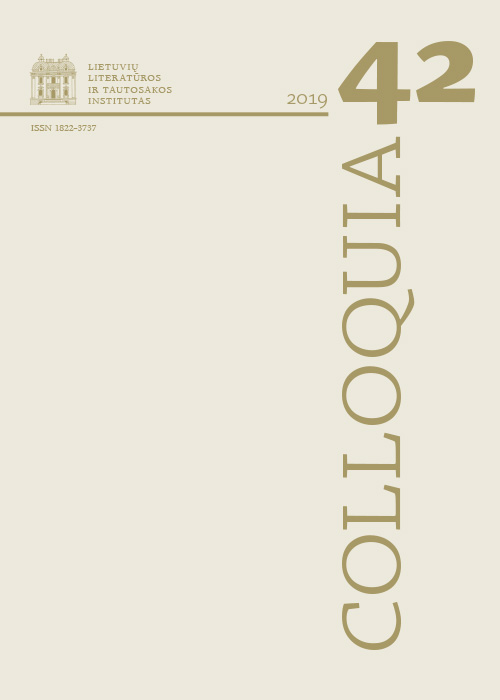The Interpretation of Tomas Venclova‘s Vilnius Text
Abstract
The article examines the concept of Vilnius text in Tomas Venclova’s cultural works. Venclova wrote a variety of texts dedicated to Vilnius in various genres, such as poems, the well-known epistolary dialogue with Czesław Miłosz, a guide of the city, essays on Vilnius history, and a book about the most famous residents of Vilnius. The Venclova’s “Vilnius text” has already been analyzed as such. The author himself has formulated the concept of Vilnius text in several works written in 2006 and later, using the term “city text,” specifically of St. Petersburg, developed by Yuri Lotman, Vladimir Toporov and other representatives of the Russian school of semiotics. In addition, Venclova applied the concept of Königsberg text in Russian literature in the analysis of Joseph Brodsky’s poetry and compared the Vilnius text with the Tallinn text. A closer look at the characteristics of Venclova’s Vilnius text raises the question about its structure, boundaries, and composition. Venclova observes that the heterogeneous Vilnius text consists of a real substratum of urban space. Its history, biographies of Vilnius residents, works of art and fiction written in various languages are linked by theme, plot, and action space. However, the differences of Belarusian, Polish, Lithuanian, Russian, and Jewish literary “Vilnius texts” contradict the fundamental requirement of the coherence of the text and the unity of meaning. National historic narratives could help to avoid the problem of coherence and to eliminate the subjectivity of the researcher of including specific works into the Vilnius text. The differences of the narratives lead to the discrepancies in Belarusian, Polish, Lithuanian, Russian, and Jewish literary “Vilnius texts.” However, on a higher level, separate multilingual texts of Vilnius together with the substratum form one polyphonic Vilnius text.
Downloads
Most read articles by the same author(s)
- Pavel Lavrinec, The Dynamics of Tomas Venclova’s Reputation in the Russian-Language Press in Lithuania (1989-1998) , Colloquia: Vol. 51 (2023): Colloquia
